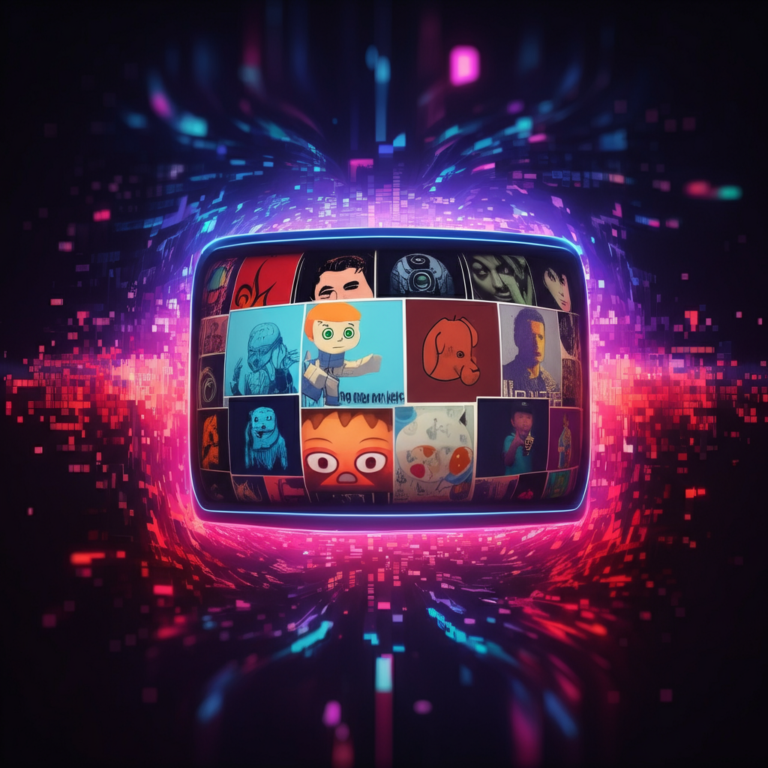The internet isn’t just a hub for news, work, or shopping—it’s the birthplace of modern culture. And at the heart of this culture are memes. These humorous, relatable, and often bizarre images, videos, or text snippets have grown far beyond viral jokes. Memes now act as tools for social commentary, marketing, and even global communication.
But how exactly do memes shape our online world? And why have they become one of the most influential forms of expression in the digital space? This blog dives deep into the phenomenon of memes, their role in creating internet subcultures, and how they’ve transformed communication as we know it.
What Are Memes, Really?
Memes aren’t just funny cat pictures (though those played a vital role in their rise). A “meme,” originally coined by biologist Richard Dawkins in 1976, refers to cultural ideas, behaviors, or symbols that spread from person to person. When we talk about internet memes, we’re referring to multimedia content that spreads rapidly online, adapted and reshaped by countless users along the way.
From classics like the “Distracted Boyfriend” image to TikTok trends like “NPC memes,” they’ve become the digital version of inside jokes—except everyone’s in on it.
The Power of Memes in Shaping Internet Culture
1. Memes as a Form of Social Commentary
Memes are often rooted in current events, making them a lightning-fast response to political scandals, celebrity mishaps, or world news. Platforms like Twitter, Reddit, and Instagram give everyday people the tools to create and share imagery that reflects the public’s unfiltered opinions.
For example, consider the Bernie Sanders “chair meme” featuring him bundled up in mittens during the 2021 presidential inauguration. Not only was it hilarious, but it also symbolized feelings of isolation and practicality—a sentiment many resonated with during a pandemic.
2. Building Online Communities and Subcultures
Memes are a common language, connecting like-minded people and fostering online communities. Specific meme subcultures, such as “Dank Memes” or “Wholesome Memes,” have their own sets of humor and norms.
Platforms like Discord and Facebook groups are hotbeds for meme culture, where creators and fans come together to laugh and bond over shared experiences. Even niche communities—think fan bases for Netflix series or indie video games—use memes to fuel conversation and enthusiasm.
3. Redefining Communication
Gone are the days when communication was purely verbal or text-based. Memes add a layer of creativity to how we interact online. Whether it’s through a GIF reaction on Slack or a relatable Instagram story, memes often communicate ideas better than words alone.
Remember the rise of Doge in 2013? The multi-colored Comic Sans text adorning a confused Shiba Inu spawned an entirely new way to express comedic amazement—and that same energy thrives in newer formats like TikTok memes.
4. Influence on Mainstream Media and Marketing
Memes don’t just stay online. The most popular ones inevitably leak into mainstream media, influencing advertisements, TV shows, and even fashion trends. Brands like Wendy’s and Netflix actively use memes to connect with younger audiences.
Take the 2015 “Left Shark” meme from Katy Perry’s Super Bowl performance—it inspired apparel, Halloween costumes, and endless corporate nods. By integrating memes into campaigns, companies signal that they understand the language of the internet, making them feel current and approachable.
How Memes Have Evolved Over Time
Memes have come a long way since the “I Can Has Cheezburger” days. Here’s a quick timeline of their evolution:
- Early 2000s: Image macros dominate, with large captions on simple stock photos (e.g., “Bad Luck Brian”).
- 2010-2015: Vine introduces short-form video memes, while Tumblr and Reddit boost meme diversity.
- 2016 onward: Memes become more abstract, surreal, and layered—using formats like TikTok that prioritize quick, highly visual jokes.
- The Future: AI tools like DALL·E and ChatGPT are creating a new age of meme-making, allowing for even greater customization and creativity.
What’s remarkable is how memes can transform within hours. A joke that starts on Reddit in the morning might trend on Twitter by the afternoon and be adapted into YouTube videos by nightfall.
Memes in Business and Marketing
For businesses, understanding meme culture isn’t just a quirky curiosity—it’s a strategic move. Memes provide engagement opportunities that are humorous and humanizing, making brands seem more relatable without the hard sell.
Keys to Using Memes Effectively in Marketing
- Know Your Audience: Not all memes will resonate. A younger demographic might love TikTok trends, while older audiences may prefer timeless meme formats.
- Stay Authentic: Forced humor can harm your brand more than help. If it doesn’t feel natural, skip it.
- Act Quickly: Timing is everything with memes. Jumping on a trend days or weeks late makes your brand seem out of touch.
Nike’s use of the “Just Do It” meme is a perfect example of seamless integration into a marketing campaign. They took what already existed culturally and made it their own—without feeling forced.
The Ethical Side of Memes
While memes bring people together, they can also present challenges. Some memes tread on sensitive topics or amplify misinformation, highlighting the thin line between funny and offensive. Platforms like Instagram now actively combat harmful meme pages, aiming to keep this powerful tool positive.
It’s important for creators and brands alike to approach memes ethically—avoiding stereotyping or using humor that isolates specific groups of people.
What Lies Ahead for Memes?
Memes show no signs of slowing down. If anything, advances in artificial intelligence and virtual reality might push meme culture into entire new dimensions—literally. Immersive memes in the metaverse or AI-generated memes tailored to personal humor preferences could become the norm.
What’s clear is that memes have cemented their place as the internet’s cultural heartbeat. From creating laughter to uniting global communities, their power is both undeniable and unstoppable.
Keep the Conversation Alive
Memes are more than internet ephemera—they’re cultural artifacts that speak volumes about the times we live in. Whether you’re a casual scroller or a brand looking to ride the meme wave, understanding their power is key to thriving in the digital landscape.
Looking to create memes or marketing content that truly stands out? Reach out to our team for expert advice, and start turning your ideas into cultural moments.





















0 Comments